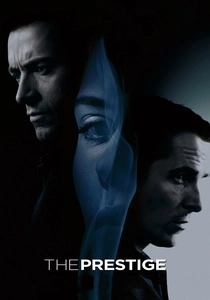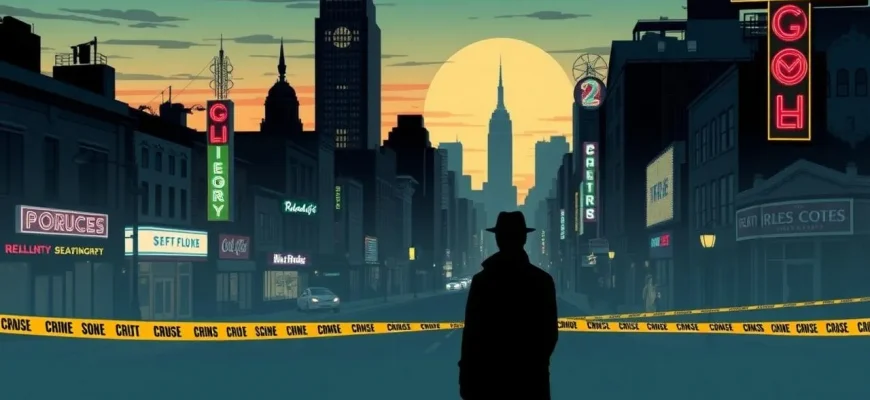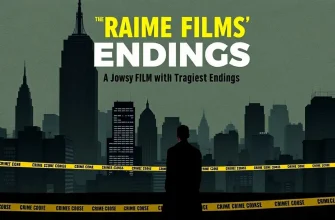Welcome to our curated collection of crime films that not only thrill with their plots but also leave you pondering life's deeper questions. These movies weave intricate tales of crime and morality, culminating in endings that challenge conventional thinking and provoke introspection. Whether you're a fan of noir, psychological thrillers, or existential dramas, this list promises to enrich your cinematic experience with its blend of suspense and philosophical depth.

The Third Man (1949)
Description: This classic noir film explores themes of friendship, betrayal, and moral ambiguity in post-war Vienna, with an ending that leaves the audience pondering the nature of loyalty and justice.
Fact: Orson Welles was not the first choice for the role of Harry Lime; he was brought in after the original actor fell ill. The film's famous zither score was composed by Anton Karas.
 Watch Now
Watch Now 
A Clockwork Orange (1971)
Description: Stanley Kubrick's adaptation of Anthony Burgess' novel delves into themes of free will, violence, and redemption, with an ending that leaves viewers to decide the moral implications of conditioning.
Fact: The film was banned in several countries due to its violent content. Kubrick himself withdrew the film from UK cinemas after threats were made against him and his family.
 Watch Now
Watch Now 
The Conversation (1974)
Description: Francis Ford Coppola's thriller about a surveillance expert whose life unravels as he becomes obsessed with a conversation he recorded, leading to a philosophical exploration of privacy and paranoia.
Fact: The film was made during a break in the production of "The Godfather Part II." The ending was reshot after Coppola decided the original was too ambiguous.
 Watch Now
Watch Now 
Se7en (1995)
Description: David Fincher's dark tale of two detectives tracking a serial killer who uses the seven deadly sins as his modus operandi. The ending forces viewers to confront the moral ambiguity of justice and retribution.
Fact: Brad Pitt and Morgan Freeman had to wear weights to simulate the exhaustion of their characters. The film was originally rated NC-17 but was edited down to an R rating.
 Watch Now
Watch Now 
The Usual Suspects (1995)
Description: This film masterfully blends crime with a mind-bending twist that leaves viewers questioning reality and the nature of truth. Its ending is a philosophical puzzle that invites endless debate.
Fact: Kevin Spacey won an Academy Award for Best Supporting Actor for his role as Verbal Kint. The film's title refers to a line from the film "Casablanca."
 Watch Now
Watch Now 
The Insider (1999)
Description: Based on a true story, this film tackles corporate ethics, whistleblowing, and personal integrity, with an ending that leaves viewers questioning the price of truth and the role of media.
Fact: Al Pacino and Russell Crowe both received Academy Award nominations for their performances. The film was shot in a documentary style to enhance realism.
 Watch Now
Watch Now 
Memento (2000)
Description: Christopher Nolan's exploration of memory, identity, and revenge, 'Memento' ends with a philosophical conundrum about the reliability of our own perceptions and the nature of truth.
Fact: The film was shot in reverse order to match the narrative structure. Guy Pearce's character, Leonard, has a condition called anterograde amnesia.
 Watch Now
Watch Now 
The Lives of Others (2006)
Description: Set in East Germany, this film examines surveillance, privacy, and the human capacity for change, ending with a philosophical reflection on the impact of one's actions on others.
Fact: The film won the Academy Award for Best Foreign Language Film. It was also the first German film to win this award since
 Watch Now
Watch Now 
The Departed (2006)
Description: This modern-day retelling of "Infernal Affairs" delves into themes of loyalty, betrayal, and identity, with an ending that leaves viewers pondering the futility of one's actions in the grand scheme of life.
Fact: Martin Scorsese won his first Best Director Oscar for this film. It was also the last film to feature both Jack Nicholson and Leonardo DiCaprio.
 Watch Now
Watch Now 
The Prestige (2006)
Description: A story of rivalry between two magicians, this film explores themes of obsession, sacrifice, and the cost of ambition, ending with a twist that questions the nature of reality and performance.
Fact: The film's title refers to the third act of a magic trick, known as "The Prestige." The Tesla machine in the film was inspired by Nikola Tesla's real-life experiments.
 Watch Now
Watch Now 








